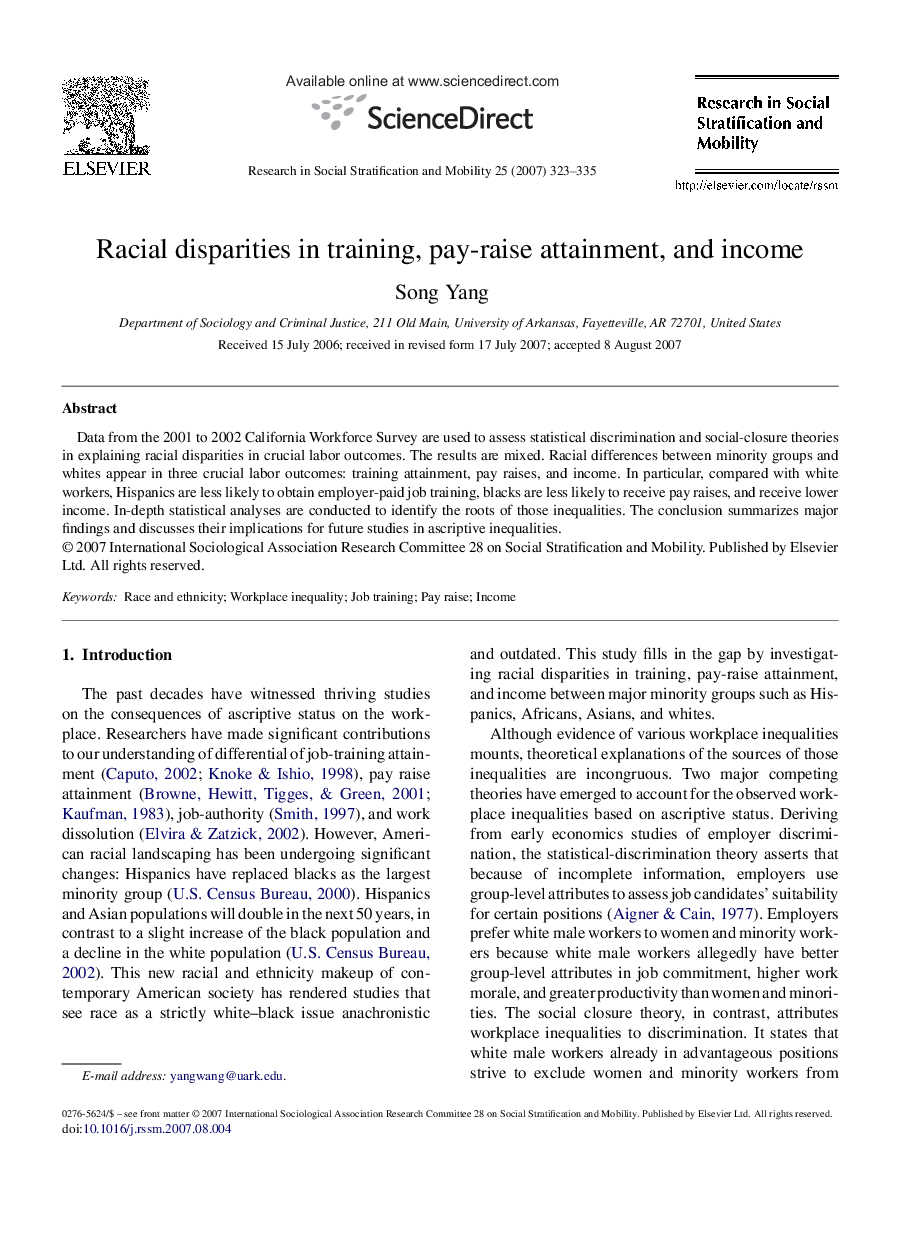| Article ID | Journal | Published Year | Pages | File Type |
|---|---|---|---|---|
| 998642 | Research in Social Stratification and Mobility | 2007 | 13 Pages |
Abstract
Data from the 2001 to 2002 California Workforce Survey are used to assess statistical discrimination and social-closure theories in explaining racial disparities in crucial labor outcomes. The results are mixed. Racial differences between minority groups and whites appear in three crucial labor outcomes: training attainment, pay raises, and income. In particular, compared with white workers, Hispanics are less likely to obtain employer-paid job training, blacks are less likely to receive pay raises, and receive lower income. In-depth statistical analyses are conducted to identify the roots of those inequalities. The conclusion summarizes major findings and discusses their implications for future studies in ascriptive inequalities.
Keywords
Related Topics
Social Sciences and Humanities
Economics, Econometrics and Finance
Economics, Econometrics and Finance (General)
Authors
Song Yang,
